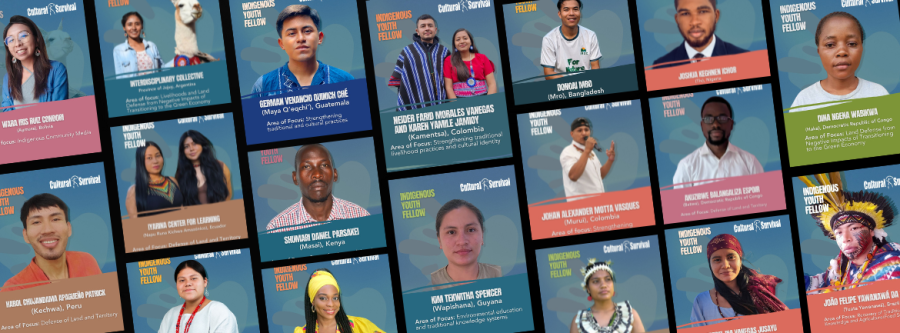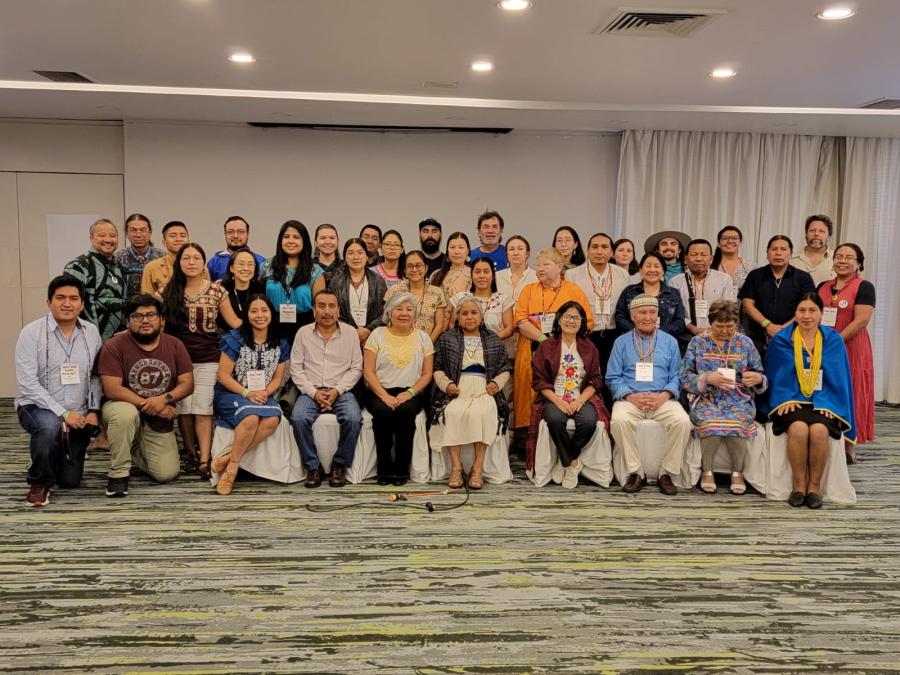This issue of the Quarterly documents and analyzes cases in which current changes and conflicts are affecting the belief systems of indigenous peoples. Around the world, increased competition for natural resources has exacerbated religious and ethnic differences and strained religious tolerance. Violence between competing ethnic or religious groups has frequently been the result.
Examples - from East and West Africa, the Middle East, India, Papua New Guinea, South America, the Caribbean and the United States - illustrate harsh changes in the lives of indigenous peoples, changes which find expression in religion. Each example also illustrates some form of aggression, motivated by religious beliefs or other orthodoxies, which has had dire consequences on the lives and beliefs of native communities.
This issue also contains articles about religious conflict where outside contact has not been a factor.
MISSIONIZATION
The impact of missionary activity in indigenous populations has become serious and controversial, both for indigenous groups and those that work to support their rights, including missionaries themselves.
Missionary groups today face charges of paving the way for the sort of assimilation which destroys cultural values and opens indigenous peoples to economic exploitation.
Those who support missionary work frequently argue in favor of the essential services missions provide to indigenous communities. Health care, education and transport, they argue, often is provided only by missionaries. This is true, but the price paid for such services is high. Missionaries often show little respect for the cultures of indigenous peoples. On the contrary, they overtly undermine the confidence of indigenous peoples by robbing them of their beliefs and faith in themselves. Missionary-designed development projects often work to integrate tribal peoples into national society by promoting the sort of individualism perceived as essential for survival in modern society yet which runs counter to community-based economic patterns.
Among missionary organizations, the Summer Institute of Linguistics (SIL) also known as the Wycliffe Bible Translators (WBT), has received much publicity and has become the focus for great controversy.
The largest Fundamental Protestant missionary enterprise, the SIL/WBT has about 2000 overseas workers, subsidized by churches in the United States and England. SIL/WBT has undertaken the task of translating the New Testament into all of the world's languages, expressly to facilitate conversion. With 3000 languages remaining, SIL has gained access to remote areas of the world by exchanging essential services - transportation, education, medical assistance - for unlimited license to practice evangelism among tribal groups. The SIL/WBT activities include many development projects which critics view as disruptive to indigenous lifestyles. By throwing into disequilibrium a group's traditional socioeconomic balance, new conflicts and inequalities arise, as illustrated by Stephanie Fins' discussion of the impact of the SIL on the Machiguenga people of Peru. There, SIL-organized cooperatives have created new status systems, inequalities, and dependency of imported Western goods.
Also in this Quarterly.
- Phillip Stevens' discusses missionary activity in Nigeria where, he asserts, missionaries disrupted indigenous religious, ethnic and cultural mores while "leaving nothing in their place."
- Angela Gilliam considers the irony of SIL's manipulation of language evolution in Papua New Guinea, where English has been proclaimed the national language but where SIL continues to communicate and promote Christian dogma in local dialects.
- Father Juan Bottasso critically reviews the history of missionization among the Shuar in Ecuador.
- Simeon Jiminez Turon, a Yecuana Indian, decries the effects of missionaries on his people.
- Mary Westropp analyzes the Church of the Word, which strongly influenced the recently deposed dictatorship of Rios Montt, and reveals the religious philosophy and its justification for the oppression imposed by Guatemala's past regime on Indians.
- Stephen Glazier's discusses new missionary efforts emerging in the Third World which, to date, lack the power, drive and efficiency of other Western inspired activities.
- Christine Desan's consideration of Hmong migrants to the United States reveals Hmong adoption of Christianity only as an accommodation which permits Hmong to live harmoniously with their neighbors in a new land.
- Matthew Kapstein traces the transformation of religion and written scriptures among Sherpa in Nepal.
- William Brower describes changes in the ritual life of the Inupiat.,/P>
RELIGIOUS PERSECUTION
This Quarterly also contains several accounts of religious persecution resulting from competition for political power or material resources.
Economic and political issues motivated to a large extent the conflicts in Assam as well as the Sikh violence in India. Ashutosh Varshney's article reviews such problems.
Barbara Joshi describes another explosive issue in contemporary India - the Untouchables. Many Untouchables have sought to reject their assigned status through conversation to other religions - Sikh, Christian, Buddhist, Muslim - and through rioting.
Two final examples consider government persecution of religious minorities - the Baha'is of Iran and the Falashas of Ethiopia.
The examples in this Quarterly indicate that intolerance for the beliefs and customs of others results in destruction for all parties involved, and that interference in the religious principles guiding the lives of indigenous communities often sabotages entire cultures and societies. While this issue does not include discussions of Christian/Muslim conflict in sub-Saharan Africa, which are the basis for political conflict between North and South in Sudan and Chad, or the forced conversion of Animists to Islam in such countries as Indonesia, and the myriad of religious conflict in the Middle East, we hope that nonetheless this issue illuminates for our readers the root causes of some religion-based conflicts occurring around the world.
Article copyright Cultural Survival, Inc.



